Aliens, Psychopaths, and IDF Soldiers
On the global zone of interest—and a week of staggering bloodshed in Gaza and the West Bank
Quick editor’s note for new readers: I send this out every Saturday or Sunday. It opens with a short reflection on what’s been on my mind, followed by a weekly news roundup organized by region—Gaza, the West Bank, Israel, the US, and occasionally elsewhere. The stories come from American, Arab, Israeli, and European outlets, as well as firsthand testimony, with links to the sources provided throughout, along with my own reporting. All this is to say that if the length feels intimidating, feel free to just read the opener or skip ahead to whatever section speaks to you.
For my money, the most disturbing scene in movie history comes from Jonathan Glazer’s 2013 horror film Under the Skin. An alien inhabiting Scarlett Johansson’s body impassively watches a man dive into the ocean to rescue his drowning wife, who had gone in after their drowning dog, leaving their baby screaming on the rocky shore. The wife and dog disappear into the sea. The man washes back to shore, barely moving. The “woman” walks up, smashes his head with a rock, and drags his body away.
Later, her handler—possibly another alien, or just a psychopath—returns to the beach to retrieve the belongings his subject left behind. It’s dark now. The baby is still there, hysterical, nose running, reaching out as the man approaches. But the man picks up what he came for, turns, and walks away without so much as a glance. The baby, alone again, tries to stand but keeps falling on the rocks. He’s too young. He looks around, wailing, expecting someone to come, as the tide begins to creep in.
The alien’s mission, we learn (spoiler alert!), is to bring humans into another dimension where a black, viscous fluid engulfs their bodies, slowly breaks down their form, and, you might say, (literally) de-humanizes them. But as the movie goes on, her own humanity emerges, and she develops a set of emotions that render her incapable of such cruelty. The point of it all is quite clear: no human with even the most basic sense of empathy could do such things.
All of this came to mind when my friend Salem Adra, the brother of Basel Adra from No Other Land, wrote to me about the latest IDF raid of Masafer Yatta, the West Bank village in the South Hebron Hills facing imminent expulsion. According to Salem, soldiers stormed the tiny hamlet of Al Markez, terrorized the community, and arrested the adults, leaving two babies on their own. The below photo was taken by a resident of a neighboring community who discovered them later in the day, unsure how long they’d been left alone. By the grace of God, they’re okay.
If the name Jonathan Glazer sounds familiar, it’s probably because he’s also the Oscar-winning director of The Zone of Interest, a film about the commandant of Auschwitz and his family, who live next door to the camp. The title refers to the bureaucratic term for the buffer zone around Auschwitz where SS officers and their families lived and where the camp’s operations extended into what appeared to be normal civilian life.
Unlike in Under the Skin, the bystanders in The Zone of Interest—not the SS officers, but their families—are neither aliens nor psychopaths. They’re not even the functionaries Hannah Arendt described in her report on the banality of evil, who pulled the levers of death while abstracting away the outcome. They are wives and mothers, fully capable of love and kindness, who tend their gardens and raise their children while ignoring the smoke from the crematoria and the screams from next door. The horror lies in how recognizably human they are—and in how ruthlessly they’ve narrowed their empathy to those within their circle, building mechanisms to exclude the Other from moral concern. In effect, if not in feeling, they’re not so different from the un-humans who left the baby to drown in the sea.
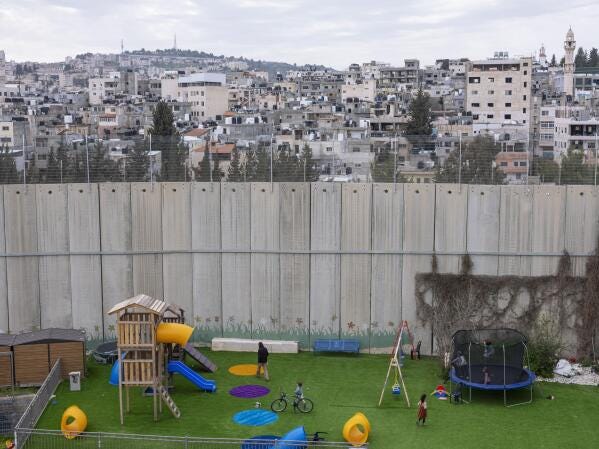
Accepting the Academy Award for Best International Film in March 2024, Glazer, who is Jewish, refuted the hijacking of his Jewish identity and Holocaust memory “by an occupation which has led to conflict for so many innocent people, whether the victims of October the 7th in Israel or the ongoing attack on Gaza, all the victims of this dehumanization.”
The choices in the film, he said, were made “to reflect and confront us in the present—not to say ‘look what they did then,’ but rather ‘look what we do now.’ Our film shows where dehumanization leads at its worst.”
The speech led to a furious response, including from over 1,000 “Jewish creatives, executives, and Hollywood professionals” who signed a letter calling it blood libel to accuse Israel of targeting civilians or even to use “words like occupation to describe an indigenous Jewish people defending a homeland that dates back thousands of years.”
But Glazer’s point was that this type of claim is no longer credible. It’s not the 1940s anymore; we have the internet now, and the whole world knows about the atrocities Israel is committing in Gaza, the West Bank, and beyond. Every day, those of us who choose to look are inundated with a barrage of little mutilated bodies, charred to their bones, limbs torn off, many dead, the ones still alive shaking in fear, crying because they’re in pain, hungry, orphaned, clinging to corpses of loved ones. Even for those who refuse to look, too much has bled through—we’re all in the zone of interest now.
Glazer ended his speech by asking how we can resist the dehumanization that has left so many victims in its wake. Fifteen months later, after one of the bloodiest weeks in Gaza and the West Bank since Israel’s assault began—with children blown to pieces daily, infants dying for lack of formula, and Israeli quadcopters emitting crying baby sounds to lure people out of their homes—the world keeps turning, and it’s as clear as ever that we’ve utterly failed to answer.
If you find this newsletter valuable and are in a position to contribute, consider upgrading to a paid subscription:
If that’s not an option, I always appreciate you sharing this newsletter on social media or with anyone you think might benefit from reading it:
Here’s this week’s roundup.
Gaza
“Laboratory of the Future”
After a month embedded in Gaza (December 2024), Jean-Pierre Filiu, a French historian of the Middle East, described a scorched wasteland where children scavenge from garbage dumps, infants have frozen to death, wounded orphans lie alone in hospitals, and Israel-backed gangs loot aid under IDF drones. He called the enclave a “laboratory of the future,” where “international law, basic human rights... are being supplanted by raw, random and very violent force.” (Haaretz)
Infanticide
Premature babies in Gaza are dying as Israel’s blockade starves hospitals of medical-grade formula. According to the Health Ministry, 580 premature babies are at risk of death from starvation. (AP)
“I can’t begin to describe how bad things are,” Dr Ahmad al-Farra, the head of pediatrics at Nasser Hospital, said. “Right now, we have enough formula for about one week. But we also have infants outside the hospital without any access to milk. It’s catastrophic. You should see the children arriving. They’re just skin and bones.” (Guardian)
Israeli defense authorities claim more than 1,000 tons of baby food have entered Gaza since minimal aid resumed in late May, but Gaza’s health officials say they don’t have nearly enough to meet the overwhelming need. (AP)
An American doctor on a medical mission to Gaza reported that Israeli forces confiscated several cans of baby formula he’d brought in his suitcase. (Le Monde)
At least 40 Palestinian babies and children have been hospitalized with meningitis at Nasser Medical Complex, where a severe shortage of medicines, supplies, and beds has forced medical staff to place some sick children on the floor. The disease is spreading through Gaza’s displacement camps. (MEE)
This Week in Murdering Doctors
An Israeli airstrike on Wednesday targeted the Gaza City home of Dr. Marwan al-Sultan, a cardiologist and director of the Indonesian Hospital, killing him along with his wife, daughter, sister, and son-in-law, just weeks after Israeli strikes shut down the hospital by destroying its generators and infrastructure. Dr. Sultan is the 70th healthcare worker killed by Israeli forces in the last 50 days and one of over 1,400 since October 2023. (Haaretz, NBC News, Guardian)
In a tribute, a fellow doctor said Dr. Sultan had “walked among the wounded as if their pain were his own, which it was... When the children were brought in with limbs dangling like forgotten promises, he did not flee. He only looked to the heavens and whispered, ‘Prepare yourselves.’” (WaPo)
On Friday night, Israel killed Dr. Mousa Hamdan Khafaja, a leading OB-GYN at Nasser Hospital, along with three of his children in a direct airstrike on their tent in Al-Mawasi, the so-called “safe zone” for displaced families. (X)
Aid Massacres
On Monday, the Israeli military admitted to killing civilians near aid sites but claimed it had “learned lessons” to prevent future incidents, insisting that “securing” GHF sites is key to “maintaining order” and giving Palestinians “an opportunity to eat from another hand that isn’t the terrorist group.” (JPost, Times of Israel)
In the four days that followed, Israeli forces stationed near GHF sites killed at least 98 more starving Palestinians seeking aid. (MEE, Al Jazeera, Haaretz)
By Saturday, Gaza’s Health Ministry said the death toll at GHF aid sites had reached 743, with nearly 5,000 injured. (Al Jazeera)
“I think you hit one!”
Two American contractors hired to guard GHF aid sites told the AP their colleagues are firing live rounds at starving Palestinians while documenting “suspicious” individuals and feeding the data to Israeli soldiers—accounts backed by videos, internal reports, and text messages.
In one video, Americans can be heard celebrating after shooting Palestinian aid seekers. (AP)
This appears to be the first documented instance of American combatants directly participating in attacks on Palestinians since 10/7.
Over 130 charities, including Oxfam, Amnesty, and Save the Children, are demanding the immediate shutdown of the GHF. (BBC).
On Saturday, the GHF said two American contractors were injured in a grenade attack. (Haaretz)
Discursive Trap
Tareq Baconi argues the international community must stop trying to make Gaza’s blockade more bearable and instead confront its illegality, which has turned pseudo-humanitarian aid into a smokescreen for genocide. “The response to this genocide shouldn’t be to allow more food into Gaza so that Palestinians can be saved from starving but killed by Israeli bombing,” he writes, adding that the aid discourse lets politicians “avert their gaze from the political crisis, as if Palestinians had suffered a natural disaster” (LRB)
“Economy of Genocide”
A Financial Times investigation revealed that the Boston Consulting Group didn’t just help design the GHF militarized aid system—they secretly drafted a $5 billion plan to “relocate” over 500,000 Palestinians, calculating it would be $23,000 cheaper per person to remove Gazans than to rebuild; BCG has since fired the two partners involved, denied collecting its $4 million fee, and launched an internal probe. (FT)
Israeli authorities still claim they’re not footing the GHF bill, though many, including Knesset members, suspect a covert government slush fund. Israeli food suppliers and logistics companies, meanwhile, are quietly cashing in. (Haaretz)
UN Special Rapporteur Francesca Albanese accused over 60 companies—including Google, Amazon, and Microsoft—of profiting from what she calls Israel’s “economy of genocide.” The Trump administration called on the UN to remove Albanese, accusing her of “virulent antisemitism” and “support for terrorism”—a position consistent with the Biden Administration’s. (MEE, Forward)
Cafe Massacre
On Monday, Israeli forces killed at least 112 people, including in an airstrike on a popular cafe.
+972 writes:
“For over two decades, Al-Baqa Cafe was a cherished seaside refuge in western Gaza City, a place for family and friends to meet or those seeking a quiet space to rest or do some work. The cafe’s simple two-level wooden structure, with open balconies shaded by umbrellas, overlooked the Mediterranean Sea, and its owners kept prices low to remain affordable to the community.
Al-Baqa was one of the few businesses in Gaza that managed to stay open despite the war. It provided internet access to students continuing their studies, journalists filing reports, and freelancers trying to work amid frequent power blackouts and repeated displacement. As life across the Strip ground to a halt, people gathered at Al-Baqa on plastic chairs, sipping whatever drinks were still available under the blockade, and stealing brief moments of calm with colleagues and loved ones.
That all came to an end around noon on Monday, June 30, when the Israeli army dropped a 500-pound bomb on the cafe without any warning.”
The Israeli army said the strike that killed at least 40 people—including a renowned photojournalist, the café’s owner, and a four-year-old child—targeted “Hamas terrorists” and claimed it took “many steps” to avoid civilian harm, but refused to offer details beyond noting that “the incident is being investigated.”
The BBC later reported that a single mid-level Hamas operative was the target of the strike. (BBC)
Mass Murder
Between Wednesday and Thursday, Israeli forces killed over 300 Palestinians and wounded hundreds more in 26 separate massacres. (Al Jazeera)
Gaza’s civil defense says Israeli forces are blocking rescue teams from reaching at least 82 people trapped beneath rubble, some still alive, in eastern Gaza City, where nonstop airstrikes have leveled over 200 homes. (MEM)
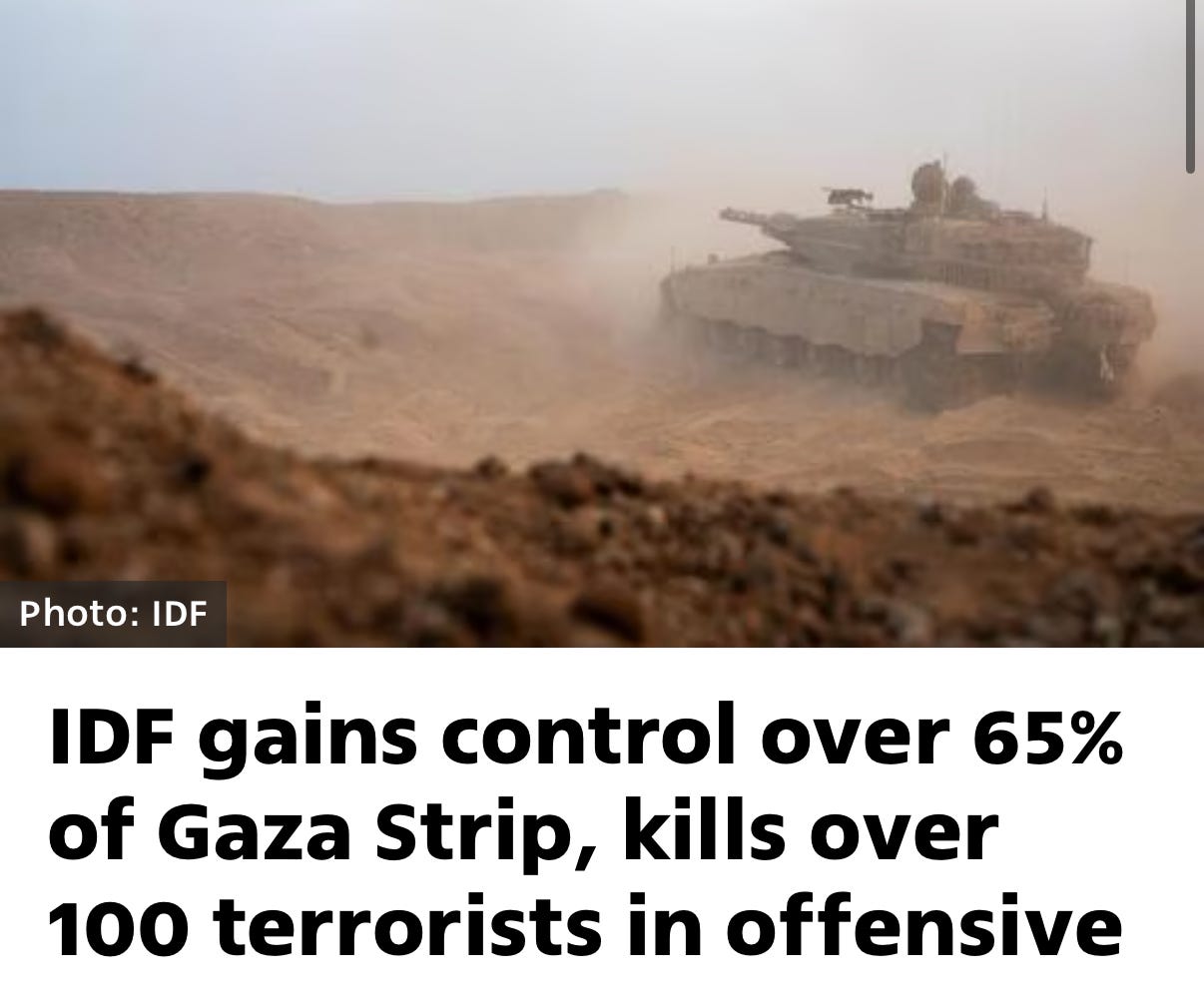
On Tuesday, 29-year-old Khan Younis resident Ayoub Saber Abu Al-Hussain died due to severe malnutrition. (Quds)
As of the time of writing, Israeli airstrikes across Gaza on Saturday have killed more than 65 Palestinians, including two people in a bombing of a vital water desalination plant in Gaza City. (Drop Site)
Optimized Annihilation
IDF pilots sent to intercept Iranian missiles dumped leftover munitions on Gaza during their return flights—not as part of any official plan, but because one pilot improvised it and the commander liked it enough to make it policy—raising serious questions about Israel’s so-called “precision” strikes. (Maariv)
Israel is using civilian contractors in Gaza to demolish buildings on a commission basis; at least one has been killed. (Times of Israel)
Ceasefire
On Tuesday, Trump announced that Israel had agreed to the terms of a 60-day ceasefire proposal under which Hamas would release 10 living Israeli hostages and 18 bodies, with negotiations for a permanent ceasefire to take place during that period. (NYT, Times of Israel)
“I can tell you with all my heart that it won’t happen,” Israeli Finance Minister Bezalel Smotrich said. “If anyone thinks about going there, they’ll meet a wall that won’t let them do it.” (JPost)
Trump has reportedly offered personal pledges to both sides—telling Israel it can resume bombing if Hamas fails to meet its vague demands, and assuring Hamas he’ll help secure a permanent end to the war. (Notably, Trump showed similar “good faith” last month by bombing Iran mid-negotiation.) (Times of Israel, MEE)
On Friday, Hamas said in a statement, “We have delivered to the mediators a response characterized by positivity regarding the hostage deal and the ceasefire in Gaza. We are ready to enter negotiations on the implementation of the agreement.”
Israeli Casualties
Twenty Israeli soldiers were killed in Gaza in June, more than any other month since the war began, bringing the military’s total death toll to 880 since October 7. (MEM)
West Bank
The Other Death Toll
Israeli forces and settlers have killed at least 1,000 Palestinians in the West Bank since October 7. (Al Jazeera)
Summary Executions
On Tuesday, a Border Police officer shot 66-year-old Zahia Jawda in the forehead while she sat on her East Jerusalem rooftop with her daughter and grandchildren. (Haaretz)
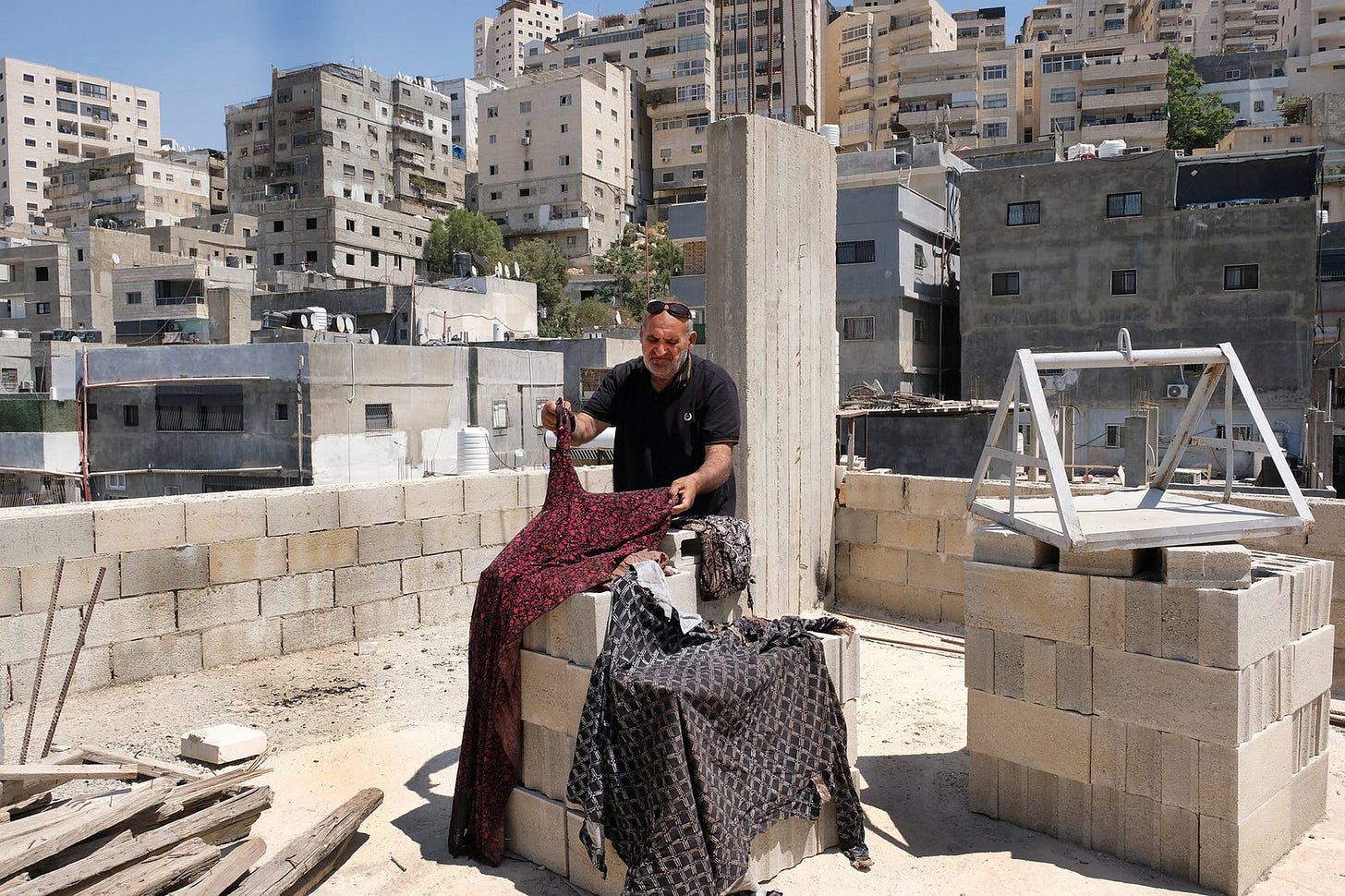
Israeli forces shot dead a 16-year-old boy, Amjad Hushya, during a raid on downtown Ramallah and killed 24-year-old Samer al-Zagharna near the Meitar crossing in Hebron overnight into Tuesday. (Haaretz)
Lo’ay Faisal Nasr-Allah, a 22-year-old from Jenin with no prior health issues, died Monday after being transferred from Ketziot Prison to Soroka Hospital; he is at least the 73rd Palestinian to die in an Israeli prison since October 7. (MEE, Quds)
B’Tselem found that Israeli forces broke their own pardon deal by executing 31-year-old Rami al-Kukhun—an ex-Lions’ Den fighter turned PA intelligence officer—shooting him point-blank outside a Nablus barbershop as he calmly raised his hands. (B’Tselem)
In Balata camp, Israeli forces re-arrested Fahed Sawalhi—freed under the January prisoner deal—making him at least the 15th released detainee seized again, despite the ceasefire’s explicit ban on re-arrests for the same charges. (Quds)
Five months into their West Bank assault, Israeli forces are still raiding and demolishing refugee camps in Jenin, Tulkarm, and Nour Shams, displacing 40,000 Palestinians and leaving entire communities without medical care, basic services, or infrastructure. (MEM)
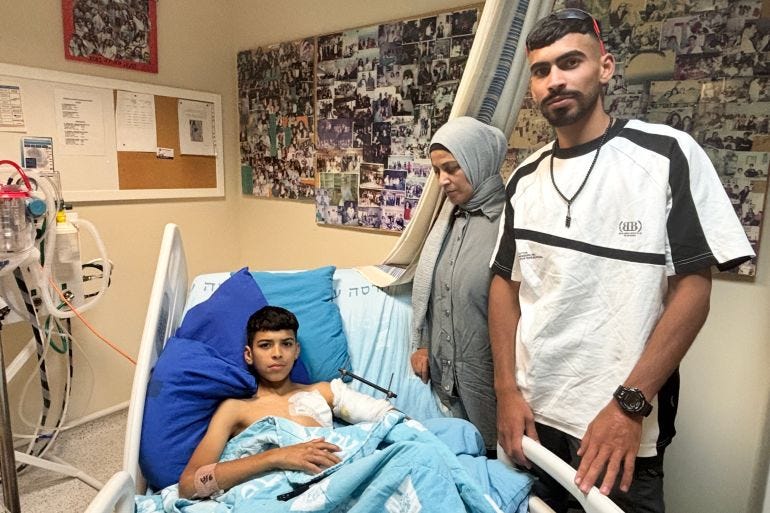
Israeli forces stormed a remembrance service in Hebron on Friday night for a former West Bank resident killed in Gaza, firing stun grenades and tear gas canisters at mourners. (MEE)
Daily Pogroms
Israeli settler assaults on Palestinians in the West Bank have jumped 30% from last year, with 414 attacks reported in the first half of 2025 alone. (MEM)
Settlers rampaged through Masafer Yatta on Monday under army protection, attacking elderly Palestinians, injuring at least five people, and uprooting 150 olive trees before the military sealed the area and seized land to build an illegal outpost road. (New Arab)
On Tuesday, settlers set fire to a house in Hizma and shot at Palestinians. (J Post)
That same day, settlers from Yitzhar torched hundreds of olive trees near Duma, then blocked residents and firefighters from accessing the village’s water well to extinguish the blaze. (MEE)
In one of the largest forced displacements since October 7, settlers expelled the entire Bedouin village of Mu’arrajat on Friday, days after setting up an illegal outpost, stealing 60 sheep, and terrorizing families—including drunk settlers ransacking homes and threatening children—while Israeli soldiers stood by, chatted with the perpetrators, and took no action. (Haaretz)
Also on Friday, settlers and soldiers launched coordinated attacks across Burin, Juris, Aqraba, and Beita—vandalizing property, cutting down olive trees, stealing livestock, beating residents, and trying to burn a home near Mount Sabih—before Israeli forces stormed the area, injuring eight more with tear gas and live fire. (MEM)
Masked settlers attacked Palestinians protesting illegal outposts near Sinjil and hurled stones at two German journalists reporting on the scene. (Times of Israel, Haaretz)
On Saturday, Israeli settlers reportedly opened fire on Jabal Bir Qouza, a village south of Nablus. (Drop Site)
Jewish Terrorism Reckoning
The Israeli government is finally addressing Jewish terrorism in the West Bank—not for the thousands of Palestinian victims, but because settlers attacked an IDF base, beating soldiers and setting it ablaze.
Israeli politicians denounced the violence, but many rushed to defend the settler movement overall, insisting the assailants were just a fringe group and warning not to “tarnish an entire community.” (J Post)
An IDF commander in the West Bank said that “90% of our time is spent trying to stop the settler youth from setting fire to the West Bank.” (Haaretz)
On Monday, Israeli forces demolished five unauthorized West Bank outposts, a rare step since October 7. (Times of Israel)
Child Abuse
Welfare agencies in Israel are recognizing illegal outposts as foster homes, enabling settlers to recruit poor, at-risk youth and deploy them to terrorize Palestinians. (Haaretz)
Second Nakba
Last month in The Baffler, I wrote about the quiet bureaucratic coup that enabled Israel to effectively annex the West Bank without fanfare. In the NYRB, David Shulman writes about how the “intricately intermeshed system of the occupation—settlers, soldiers, police, military courts, the media, and, behind it all, the government”—has always been “committed to a single overriding goal: ruthless ethnic cleansing in all of Area C ... and, more recently, in parts of Area B.”
Archaeological Warfare
Archaeologist Rafi Greenberg spoke to +972 Magazine about Israel’s weaponization of archaeology in the West Bank, offering several updates to my December investigation in The Drift—which, if you haven’t read yet, I recommend you do. It traces how the settler movement grew out of a centuries-old Zionist project to recast the Bible as historical and scientific fact.
Israel
More Blood!
Outside the Knesset, wounded Israeli soldiers rallied to demand that the war in Gaza continue until Hamas is “fully defeated,” declaring, “Our blood is not for nothing.” (ynet)
Popular Opinion
Israeli lawmakers voted 14-2 to advance impeachment proceedings against Arab lawmaker Ayman Odeh for a tweet celebrating the release of Palestinian and Israeli captives. (New Arab)
Israel’s “Equality Minister” told Piers Morgan that the forced transfer of Palestinians is not ethnic cleansing. (Piers Morgan)
The Netanyahus
Israel’s military censor ordered the removal of a story about Avner Netanyahu’s secret £400K apartment purchase in Oxford. (Haaretz)
Criminal Justice
New video emerged that appears to show IDF soldiers raping a Palestinian detainee.
US
Free Speech Report
The University of California banned student governments from boycotting countries—clearly aimed at the BDS movement—bowing to Trump’s directive that anti-Israel boycotts make institutions ineligible for federal grants. (LAT)
A New Day
CNN reports that between 2017 and 2025, Democrats swung 56 points on the Israel-Palestine question, shifting from supporting Israel by +13 to backing Palestine by +43.
Mamdani Meltdown
In a striking break from precedent, top New York Democrats are still refusing to endorse Zohran Mamdani, the landslide winner of the mayoral primary.
House Minority Leader Hakeem Jeffries said, “We don’t really know each other well.” (Politico)
Senate Minority Leader Chuck Schumer’s office issued a statement condemning the phrase ‘Globalize the Intifada,’ which Zohran has not used, and declined to endorse him. (Times of Israel)

By contrast, Lydia Polgreen writes, “Back in 2021, when Eric Adams, New York’s scandal-tarred mayoral incumbent, eked out a very narrow victory in the Democratic primary in the eighth round of voting, he was hailed by national Democrats as a potential savior.” (NYT)
Adam Johnson analyzed 89 episodes of the major Sunday news shows and found they’ve never once featured a Palestinian guest, even as they covered Gaza extensively and debated how many civilians it was appropriate to kill. (In These Times)
ADL chief Jonathan Greenblatt, who defended Elon Musk’s Nazi salute, demanded Mamdani bend the knee:
Trump vowed to investigate Mamdani’s citizenship and threatened his arrest for defying ICE. (NYT)
The Times followed a tip from a racist eugenicist to run a hit piece on Mamdani, accusing him of misidentifying himself on his 2009 Columbia application by checking “Asian” and “Black or African American.” Mamdani—who wasn’t admitted to Columbia, where his father was a prominent professor—is of Indian descent (Asia), was born and partly raised in Uganda (Africa), and later moved to the US (American). (NYT)
Education Department
This summer, 1,500 Israeli soldiers will serve as ambassadors at 158 Jewish summer camps across North America, many having recently returned from Gaza. (Mondoweiss)
Jewish Currents reports that Harvard and other universities are turning to Project Shema—an “antisemitism” training group that cloaks liberal Zionism in progressive DEI language—to quietly discredit anti-Zionist speech, caution against terms like “genocide,” and define Zionism as essential to Jewish identity (Jewish Currents)
Dual Loyalty
The US approved a $510 million arms deal with Israel for thousands of bomb guidance kits. (Quds)
Netanyahu is set to meet Trump at the White House on July 7. (Bloomberg)
Shakespeare
At a rally in Iowa, Donald Trump shared his thoughts on Jews: “No death tax, no estate tax, no going to the banks and borrowing from, in some cases, a fine banker, and in some cases, shylocks and bad people. They destroyed a lot of families, but we did the opposite.”
Death in Boulder
An 82-year-old woman, Karen Diamond, died from injuries sustained in a firebombing attack during a pro-Israel demonstration in Boulder, Colorado. (WaPo)
That was a long one. If you’ve made it this far, consider taking a nice walk. And please share your thoughts in the comments.






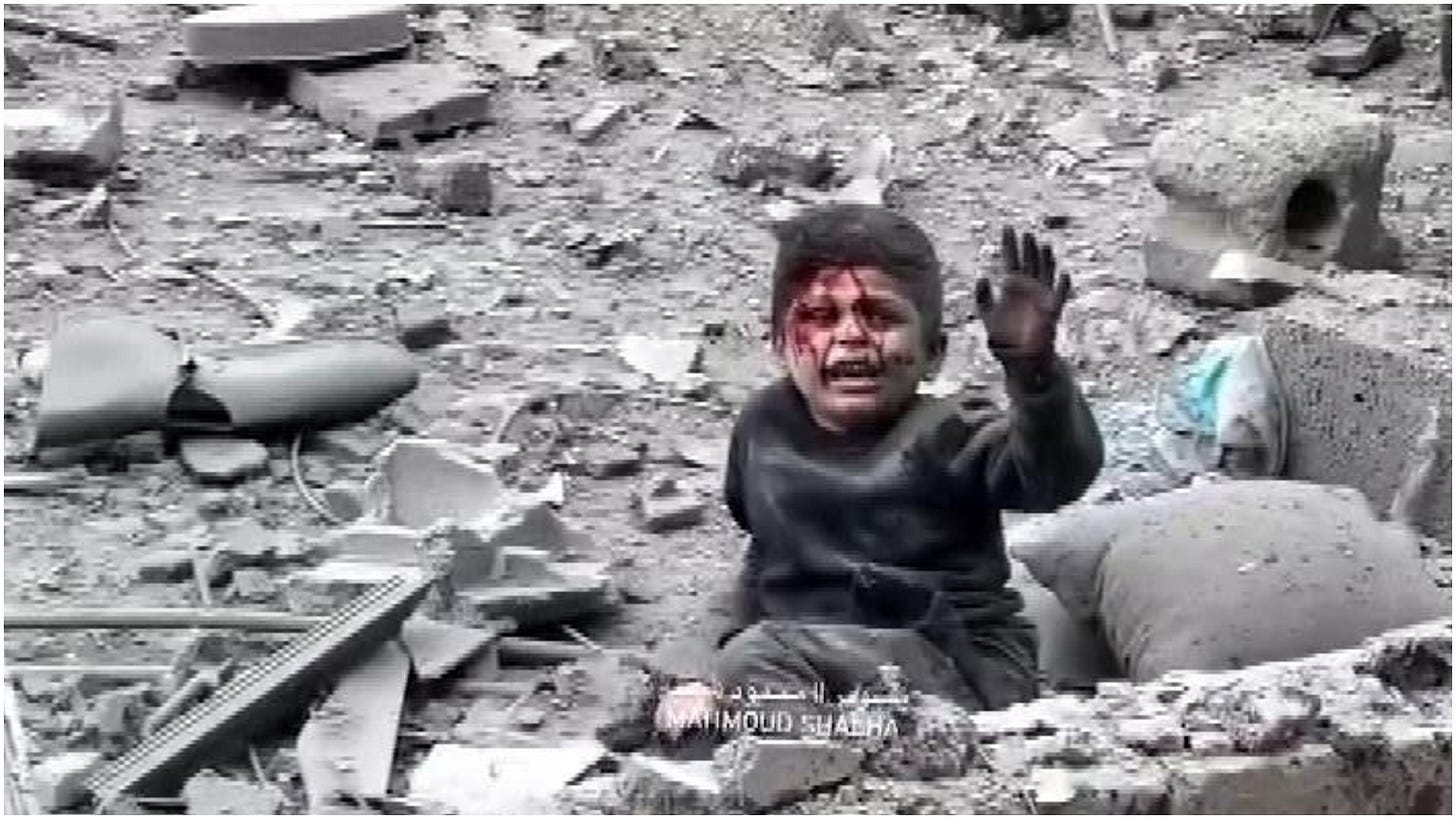
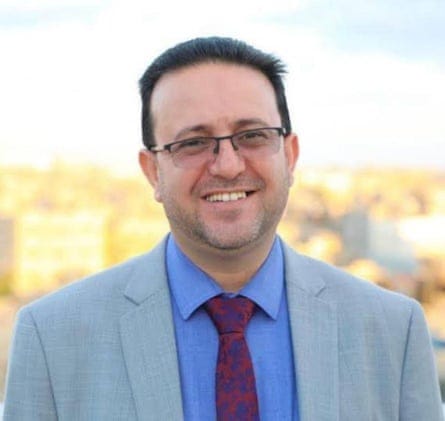









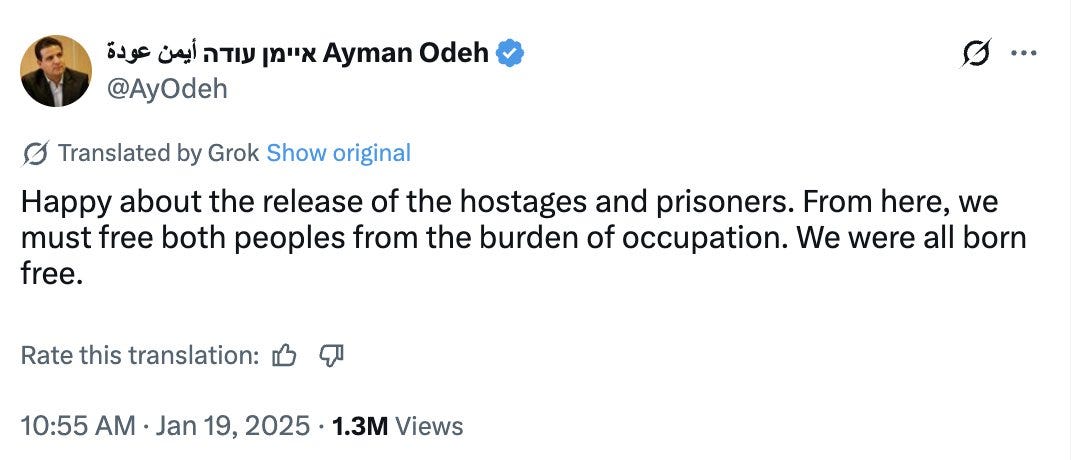



Absolutely fucking horrific. I’m struck by the many instances in this roundup in which the IDF seems hyperfocused on eradicating people and places that might embody care & tending, as if to sever the possibility of a care economy, by and for Palestinians, from taking root. And the perversion of aid sites, self-described by the IDF as an ostensible effort of expressed care (which IMO more exist to serve a perverse argument in which they can’t possibly be genociding if they are at least attempting to feed people), instead becoming new sites of annihilation. It seems to me there is a goal to leave no psychic or physical territory free from the looming shadow of possible death or mutilation. A total eclipsing of possibility, of any life-affirming expressions of basic humanity & dignity.
Don’t know if Glazer was deliberate in connecting the family scenes in “Zone of Interest” behind a wall separating them from the horrors on the side, with Israelis currently chilling on the beaches of Tel Aviv while a genocide is happening behind a wall just kilometres away. But I know I couldn’t help making the connection while watching the film.